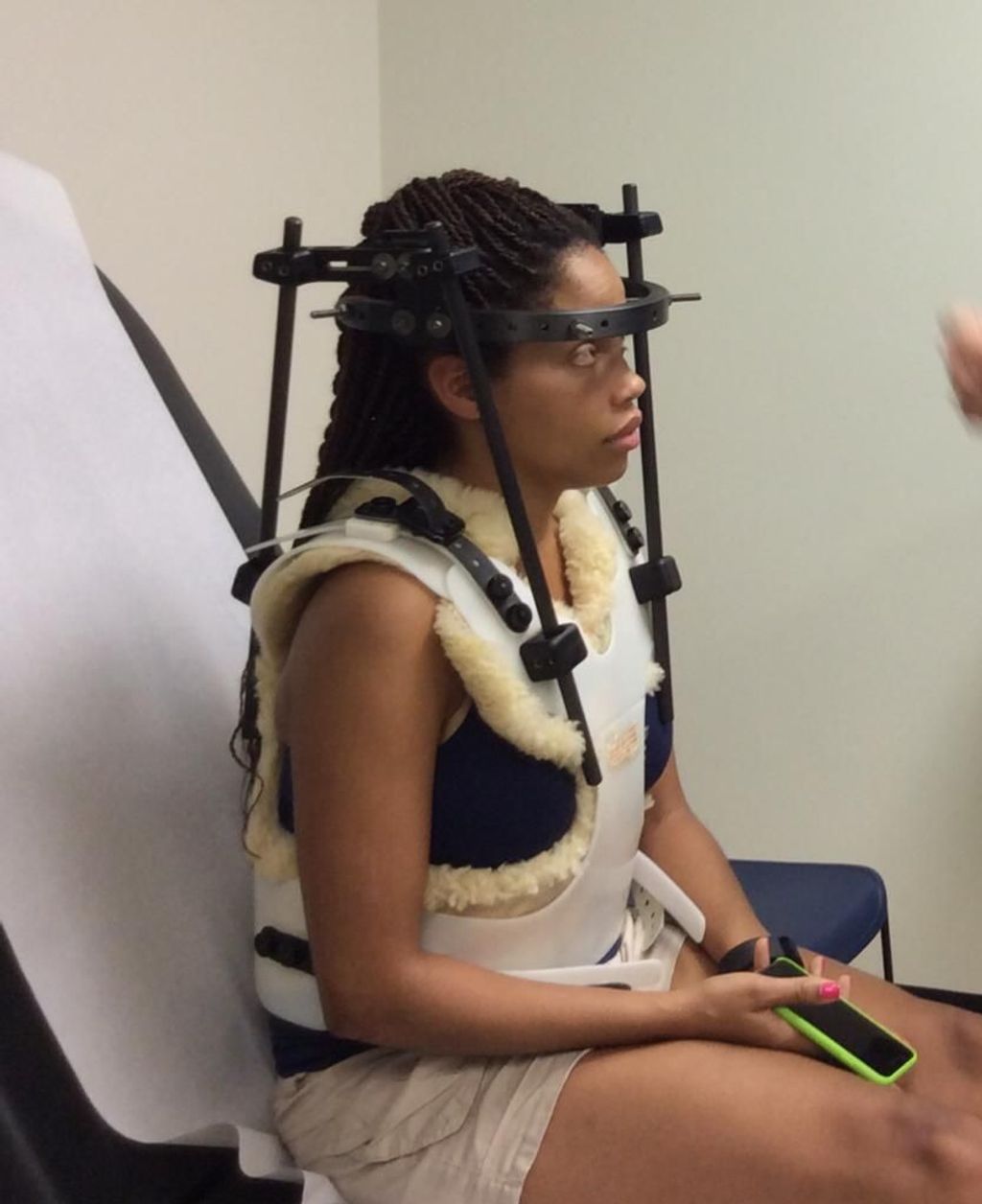Deneka Borden has no memory of the accident that would change her life.
Bermuda women’s sevens player Borden was asleep in the back seat when the car she was travelling in span out of control in June, 2016.
Her friend was thrown through the back window first, which meant, Borden believes, that when she was catapulted backwards there was nothing to stop her.
“I just flew in the air,” she told World Rugby.
Borden’s first memory is of lying on the road, in pain. She fell in and out of consciousness as paramedics secured her neck and fitted her to a stretcher before rushing her to hospital.
“I just remember everything hurt,” she added.

“Once they put the neck brace on, I felt like I couldn't breathe. So as soon as they fixed that and I felt like I could breathe, I was pretty calm. I felt like I was in good hands.
“So, the ambulance ride is pretty blurry, and even when I get to the hospital and they're running scans, I was in and out [of consciousness].”
‘It was difficult to sleep, difficult to move’
It was the following morning that the extent of her injuries became apparent. Borden had broken her back, neck and ribs, while her spleen, kidneys and liver were ruptured.
Urged not to lean forward by doctors due to the severity of the injuries to her neck — which had effectively become disconnected from the rest of her spine — Borden would spend two weeks in hospital, the initial seven days in intensive care.
At the end of that first week Borden was fitted with a halo brace, which is essentially a metal ring secured to the skull with metal rods, and attached to a plastic vest, in order to immobilise the spine and give the bones a chance to heal.
It meant that Borden was confined to a seated position for much of the next four months, unable to move her neck. “Well, my posture was great,” she joked.
“But it's very difficult to sleep, difficult to move. I still wasn't able to bend forward because I might snap my spinal cord. So, very stagnant.”
If there was one fragment of light shining at the end of the long tunnel to recovery, then it came from rugby.
Borden had played for Mariners RFC in Hamilton and for Bermuda at sevens tournaments on home soil and around the region, in Canada, the Cayman Islands and Mexico.
The early period of her convalescence also coincided with the Olympic Games 2016 in Rio, and Borden devoured the sevens tournament, watching Australia and Fiji claim gold.
At the end of September, she received the news she had been waiting to hear. Scans showed that some of her neck bones had reconnected, and so the halo could be removed and replaced with a regular neck brace.
“As soon as I got the halo off, I was like, ‘When can I get back to playing rugby?’ [The doctor] was like, ‘Well, you know, let's just take it a step at a time’,” Borden said.
“He didn't want me to have any contact with anybody. So, even walking around town or going out to a restaurant I had to have the brace just so that other people knew to be careful around me.”
It was not until December that Borden was able to return to some kind of training, although the strain her body had been under was apparent as she took that next step on her journey.

“I couldn't even do a push up, I could barely run a flight of stairs,” she said. “So, [it was] literally starting from scratch. And it was just working with my trainer to slowly build.”
‘It’s shifted my focus’
Borden continued that safety-first approach until the following spring, when she made an emotional return to action for Mariners in the final touch tournament of the 2016-2017 season.
It was quite a comeback, too, as she scored a hat-trick of tries to help secure the Scully Cup for her side. “My team was super paranoid,” Borden admitted.
“It was very unexpected. I was just planning on getting my feet, and so it was pretty great to score. My team were so happy to have me back. I felt pretty much on top of the world.”
Borden continued to put in the hard work in the gym in order to be ready for the following season, and she returned to the national team too before the end of 2017.
Her reintegration into the Bermuda set-up came almost exactly a year after the accident, during a sevens tournament in Mexico.
“I was a bit nervous, I hadn't been on the field for contact in a while, but definitely a triumphant feeling. My year of background work was all worth it to come back on the field,” she said.
That background work had not all been focused on playing. During her year of rehabilitation, Borden also had the chance to watch her team-mates in action and was drawn to the possibilities of coaching.
Borden has since taken on the role of assistant coach with the Bermuda women’s team, and was one of the driving forces behind the women’s contact league which was launched, temporarily, prior to the COVID-19 pandemic.
She has also become one of the first female referees on the Caribbean island, and believes the three disciplines — playing, coaching and officiating — can be mutually beneficial.
But, the biggest change prompted by the accident she suffered more than four years ago now is in her perspective on life.
“My outlook is to do stuff now. If I want to travel somewhere, I want to do it now. If I want to work on my fitness, I'm not putting anything off,” she said.
“It's just shifted my focus to just do what makes me happy. So, rugby makes me happy. Travelling makes me happy.”






